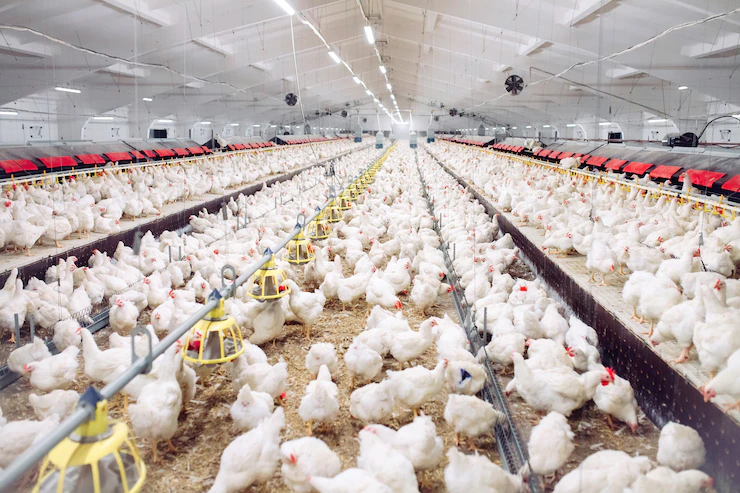Coccidiosis is a common and highly contagious parasitic disease that affects chickens worldwide, including South Africa. It is caused by the protozoan parasites of the genus Eimeria and can have a significant impact on the health and productivity of your flock. As a chicken owner, it is important to be aware of the signs and symptoms of coccidiosis to promptly identify and treat affected birds. In this article, we will discuss the common signs that your chickens may have coccidiosis.
- Diarrhea: One of the primary signs of coccidiosis in chickens is diarrhea. Infected birds may pass loose, watery, or bloody droppings. The droppings may have a foul odor and may be accompanied by mucus or undigested feed particles. Keep a close eye on the consistency and color of your chickens’ droppings as changes can indicate the presence of coccidiosis.
- Poor Growth and Weight Loss: Coccidiosis can hinder the growth and development of young chickens. Infected chicks may exhibit stunted growth, reduced appetite, and weight loss. They may lag behind their healthy counterparts in terms of size and weight. Monitor the growth of your chickens and compare their progress to age-appropriate benchmarks.
- Reduced Activity and Lethargy: Chickens affected by coccidiosis often appear lethargic and exhibit reduced activity levels. They may appear weak, huddle together, and show a lack of interest in food or water. Infected birds may isolate themselves from the flock and prefer to rest rather than engage in normal behaviors.
- Decreased Egg Production: Coccidiosis can also have an impact on egg production in adult hens. Affected birds may lay fewer eggs or cease laying altogether. The disease can disrupt the reproductive system, leading to a decline in egg production. If you notice a sudden decrease in egg production in your flock, it could be a sign of coccidiosis.
- Pale Combs and Wattles: The parasite responsible for coccidiosis can cause anemia in infected chickens, resulting in pale combs and wattles. These normally red and vibrant parts of the chicken’s head may appear pale or blanched. Monitor the color and appearance of your birds’ combs and wattles for any signs of paleness.
- Loss of Appetite: Infected chickens may exhibit a loss of appetite and reduced interest in feed. They may peck at their food less frequently or show disinterest in eating altogether. Monitor the food consumption of your chickens and note any significant changes in their eating habits.
- Dehydration: Severe cases of coccidiosis can lead to dehydration in chickens. Infected birds may show signs of increased thirst and consume more water than usual. However, despite increased water intake, they may still exhibit signs of dehydration such as sunken eyes, dry skin, and lethargy.
It is important to note that the severity of coccidiosis can vary depending on the species and strain of the parasite, the age of the birds, and their overall health status. If you suspect coccidiosis in your flock or observe any of the signs mentioned above, it is crucial to seek veterinary assistance or consult with poultry health experts for accurate diagnosis and appropriate treatment options.
Prevention and control are key to managing coccidiosis. Maintaining good hygiene, practicing proper sanitation, providing clean water and feed, and implementing appropriate coccidiosis prevention measures (such as the use of anticoccidial medications or vaccines) can help reduce the risk of infection and minimize the impact of the disease on your flock.
By closely monitoring your chickens, implementing preventive measures, and seeking professional advice when needed, you can protect your flock from coccidiosis and maintain a healthy and productive chicken population in South Africa
Join 'Farmers Mag' WhatsApp Channel
Get the latest Farming news and tips delivered straight to your WhatsApp
CLICK HERE TO JOIN






